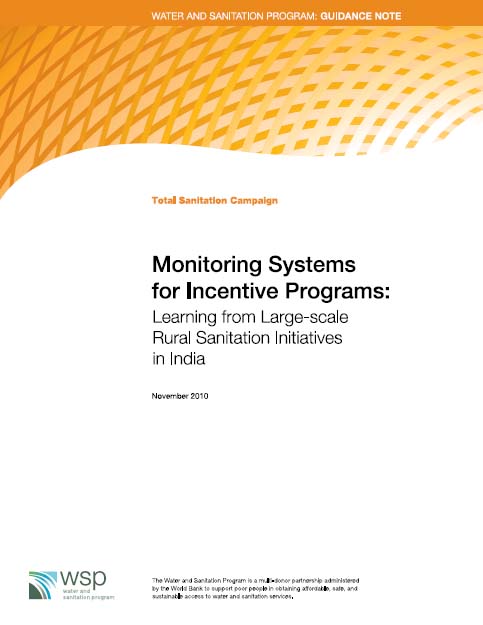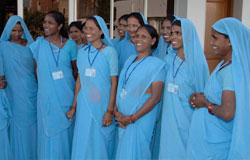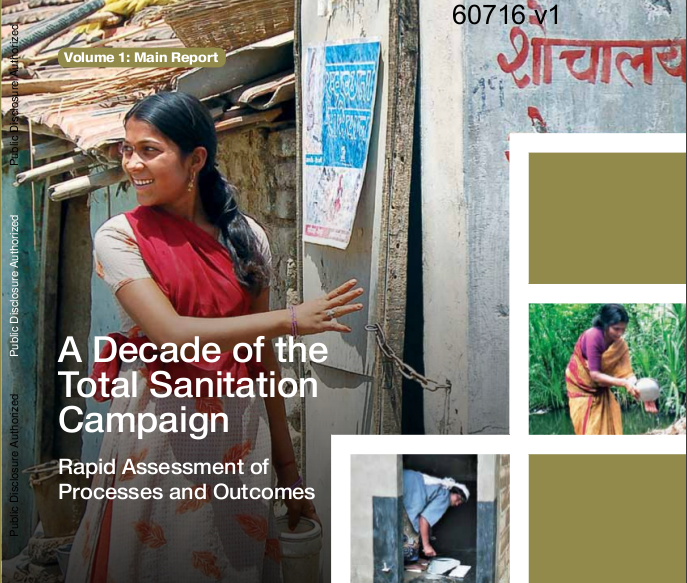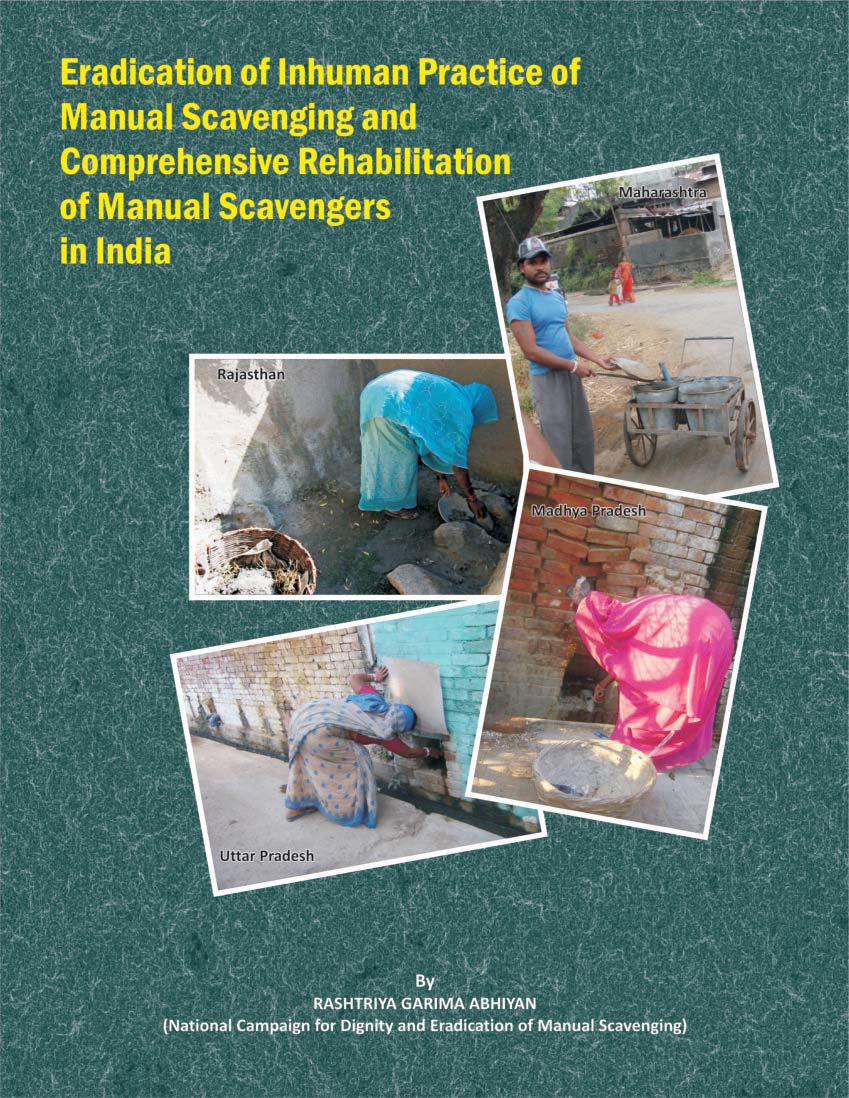/topics/sanitation
Sanitation
Upward revision of incentive amount for construction of individual household latrine under Total Sanitation Campaign PIB Release
Posted on 22 Nov, 2014 10:30 AMThe incentive for one unit of Individual Household Latrine (IHHL) has been raised from existing Rs. 2,200 (Rs. 2,700 for difficult and hilly areas) to Rs. 3,200 (Rs. 3,700 for difficult and hilly areas). The central share out of this shall be Rs. 2,200 (Rs. 2,700 in case of hilly and difficult areas) and State Government share shall be Rs. 1,000. Minimum beneficiary share shall be Rs. 300. State Governments are allowed the flexibility to provide higher incentive for a household toilet, of the same or higher unit costs from their own funds.
Shit Matters The potential of CLTS Statelevel sensitisation workshop on CLTS held in Patna Updates from the CLTS May 2011 Newsletter
Posted on 22 Nov, 2014 10:30 AMContent Courtesy:
Main highlights in this update:
- Shit Matters: The Potential of Community-led Total Sanitation: This book looks at the potential and challenges of CLTS by drawing on research in Bangladesh, India and Indonesia, as well as experiences in Africa. It includes chapters by leading scholars and practitioners in sanitation policy and practice as well as critical reflections from key players in CLTS. Shit Matters considers CLTS in terms of the social, ecological, technological, financial, and institutional dynamics and draws out wider lessons for sanitation policy and practice.
Monitoring system for incentive programs Learning from largescale rural sanitation initiatives in India A report by the Water and Sanitation Programme
Posted on 22 Nov, 2014 10:30 AM It is a part of the Global Scaling Up Rural Sanitation project of the Water and Sanitation Programme, World Bank and focuses on learning how to combine the approaches of Community Led Total Sanitation (CLTS), behavior change communications, and social marketing of sanitation to generate sanitation demand and strengthen the supply of sanitation products and services at scale, leading to improved health for people in rural areas. This is one in a series of knowledge products designed to showcase project findings, assessments and lessons learned in the project.
It is a part of the Global Scaling Up Rural Sanitation project of the Water and Sanitation Programme, World Bank and focuses on learning how to combine the approaches of Community Led Total Sanitation (CLTS), behavior change communications, and social marketing of sanitation to generate sanitation demand and strengthen the supply of sanitation products and services at scale, leading to improved health for people in rural areas. This is one in a series of knowledge products designed to showcase project findings, assessments and lessons learned in the project.
Over the last few years, the concept of open-defecation free communities has emerged as one of the building blocks toward achieving total sanitation. The term ‘access’ is widely used to capture increase in sanitation usage. However, a clean environment is a public good. Hence, there was a need to achieve total sanitation at the community level to realize public health benefits. This has led policy makers and practitioners to adopt strategies that achieve community-wide total sanitation status, which includes the community becoming open-defecation free, and adopting safe hygiene and environmental sanitation practices.
Honeysuckers How Bangalores sewage is managed A film by Gautam Vishwanath and Celine Thizy
Posted on 22 Nov, 2014 10:30 AM
Delight - Indias first electronic public toilet in Thiruvanthapuram Kerala
Posted on 22 Nov, 2014 10:30 AMWarm Greetings from Eram Scientific Solutions!!!
, is the part of USD $1 Billion, Eram Group. Eram Scientific is based out of Thiruvananthapuram, Kerala and working for addressing the pressing needs of the society through the effective use of Technology. We are giving much emphasis to R&D and now developing solutions to prevent Food Adulteration, Ensuring Women Safety, and Using Non Conventional Energy.
Delight is the blend of Information Communication and Engineering Technologies.
Gendersensitive sustainable sanitation Women s groups in Chhattisgarh take initiative to bring toilets into their households and sustainable sanitation into their communities ADB case study
Posted on 22 Nov, 2014 10:30 AM

Sanitation in Women’s Hands
Women in the villages of Chhattisgarh, India have banded together to bring some decent sanitation facilities in their homes—something which has been missing in their lives for a very long time.
A decade of the Total Sanitation Campaign - Rapid assessment of processes and outcomes: A report by the Water and Sanitation Program 2011
Posted on 22 Nov, 2014 10:30 AM The Water and Sanitation Program has analysed secondary data on the Total Sanitation Campaign (TSC) available on government websites and conducted primary analysis in 22 sample districts spread across 21 states.
The Water and Sanitation Program has analysed secondary data on the Total Sanitation Campaign (TSC) available on government websites and conducted primary analysis in 22 sample districts spread across 21 states.
With the use of secondary and primary data the report has not only been able to give a macro view of the TSC but also has been able to go into the nitty-gritty of the campaign. There are case studies of districts and villages that have achieved open defecation free status.
Eradication of inhuman practice of manual scavenging and comprehensive rehabilitation of manual scavengers in India A report by Rashtriya Garima Abhiyan
Posted on 22 Nov, 2014 10:30 AM The practice continues in the country in spite of efforts of several people, implementation of government schemes such as the National Scheme for Liberation and Rehabilitation of Scavengers since 1992 and Self Employment Scheme
The practice continues in the country in spite of efforts of several people, implementation of government schemes such as the National Scheme for Liberation and Rehabilitation of Scavengers since 1992 and Self Employment Scheme
Development of training module for water safety plan in urban areas A document by ESCI
Posted on 22 Nov, 2014 10:30 AMA Water Safety Plan (WSP) is an improved risk management tool designed to ensure the delivery of safe drinking water. It identifies hazards, means to control them, means and actions to identify loss of control and its restoration. It comprises system assessment and design, operational monitoring and management plans (including documentation and communication). Water quality guidelines have been issued by the WHO.
Guidelines for water safety plans for rural water supply systems A document by SIAES and WHO India 2009
Posted on 22 Nov, 2014 10:30 AM Delivery of safe drinking water is vital for protecting public health and of promoting more secure livelihoods.
Delivery of safe drinking water is vital for protecting public health and of promoting more secure livelihoods.
The traditional approach to water quality and safety management has relied on the testing of drinking water, as it leaves the treatment works or at selected points, either within the distribution system or at consumer taps. It is referred to as ‘end‐product testing’.





